FAIRFIELD — Four students were out in the field on a sun-splashed March day with instructor Ben Luce, drilling and tapping maple trees as temperatures climbed toward 50 degrees. Meanwhile, three students were inside a shack with instructor Jeff Chase, preparing the evaporator.

In the group of trees behind the sugar shack, students had about 100 taps that are pumped directly into the building and an additional 100 taps along nearby Green Road that are transported by hand.
Among the students inside the shack was Mackenzie Dodge, who was helping prepare the evaporator for the incoming sap. Dodge said she’s already had a fair amount of experience.
“I do maple sugaring at home, every year with my brother,” Dodge said. “I’ve learned a lot from him, so I was pretty familiar with everything already.”

Obi Meyer taps a maple tree while working with classmates Tuesday in the sugar bush at the Maine Academy of Natural Sciences on the Good Will-Hinckley campus in Fairfield. The public charter high school has built its own maple sugar shack for a course being taken by ninth graders. Morning Sentinel photo by Rich Abrahamson Buy this Photo
Dodge was among a group of freshmen students from the Maine Academy of Natural Sciences who were busy Tuesday morning tapping trees and preparing equipment to begin their three-week intensive course on maple sugaring. This year will be the second season students will use the school’s new sugar shack, which opened in February 2019 and where students created 50 gallons of maple syrup — exponentially higher than previous seasons.
Fundraising efforts and a grant from Good Will-Hinckley, a nonprofit that the school operates under, garnered $104,349 for construction and new equipment.
The academy, known also as MeANS, was Maine’s first public charter high school when it opened in 2012. Though the school has offered maple sugaring since it opened, the course was taught using nearby Kennebec Valley Community College’s sugar shack. When instructors recognized the growing interest in the course two years ago, the charter school decided to invest in building its own.
“It’s the most sought after intensive (course),” said Chase, an instructor. “The amount of seniors who give their speeches at graduation and say that sugaring was their favorite aspect of the school, it was a no-brainer to put in some more revenue investing in the program.”
Chase runs the program alongside Luce, whose family has run Luce’s Maple Syrup, of Anson, since 1795.
Together, the two teach the three-week course in which around 20 freshmen students learn the entire process of tapping, transporting, boiling and bottling. Now, students are making only maple syrup that is sold at the school and ranges in price from $5 to $35 a bottle.

The Maine Academy of Natural Sciences sugar shack is seen Tuesday as students walk near the sugar bush at the Good Will-Hinckley campus in Fairfield. The public charter high school has built its own maple sugar shack for a course being taken by the ninth grade. Morning Sentinel photo by Rich Abrahamson Buy this Photo
Matthew Newberg, the head of the Maine Academy of Natural Sciences, said they are brainstorming how to expand locations where the syrup is sold.
“Right now we only sell it at the school, but we’re looking at plans to open a farm stand here on campus,” Newberg said. “We’re also thinking about getting the product into local health food stores and local restaurants.”
With the intensive course, students begin their days at the usual time of 8 a.m., with academic courses like math, English and social studies. Then, from 10:42 a.m. to dismissal at 2:45 p.m., they’re fully immersed in maple sugaring. After its three-week run, the course is offered to students as an elective.

Shalomi Goewey drills a hole Tuesday while tapping a maple tree in the sugar bush at the Maine Academy of Natural Sciences on the Good Will-Hinckley campus in Fairfield. Morning Sentinel photo by Rich Abrahamson Buy this Photo
Dodge said her brother went through the maple sugaring program while he was a student at the academy and that the program is something she likes about going to school there.
“It’s really fun being able to come to school and get this hands-on agricultural experience,” Dodge said. “That’s what I want to do and what I want out of school so this is great.”
Thanks to the upgraded facility, students have been able to produce an increasing amount of maple syrup over the last three years. In 2018, the program yielded three-and-a-half gallons of maple sugar, while last year it capped off at 50 gallons.
“It’s really impressive,” Newberg said. “With the old shack it was like a micro-operation with what was able to be produced, like a mom-and-pop shop essentially, but now we have a professional sugar shack.”
Luce was unable to make a prediction for the amount of sap this year because it all depends on “the weather and the sun.”
“We get the best results when it goes below freezing at night and up in the high 30s to mid 40s during the day,” Luce said, “but the placement of the sun plays a role as well.”
A pattern of freezing and thawing temperatures allows pressure to build in the trees so sap will flow into the pipes once the tree is tapped.
And on Tuesday, this weather pattern caused the sap to flow liberally as students tapping trees with Luce rushed to pipe the trees after drilling the holes to avoid any spillage.
Newberg said the program is multifaceted in what it teaches the students.

Freshman and teachers maintain the sugar shack at the Maine Academy of Natural Sciences on the Good Will-Hinckley campus in Fairfield. The public charter high school has built its own maple sugar shack for a course being taken by ninth graders. Morning Sentinel photo by Rich Abrahamson Buy this Photo
“It’s not just maple sugaring; the students have lessons around science of what maple sugaring is,” said Newberg, the school’s head. “They learn about the chemical composition of maple sugar, what soils are best for the trees, what the growing season is.”
To Chase, the program allows students to not only learn a new skill, but to be exposed to a possible career path.
“This allows them to see a full scale operation of maple sugaring,” Chase said. “And if they don’t want to pursue it on this large scale, they can go home and know how to tap trees by hand.”
Send questions/comments to the editors.


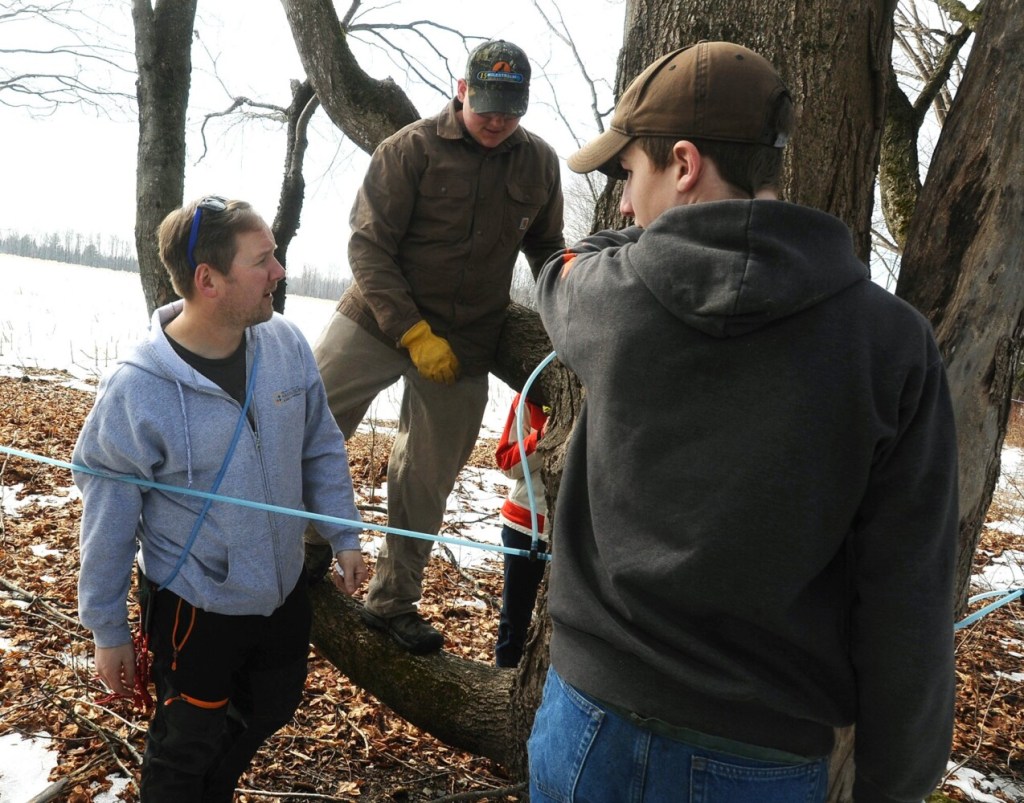
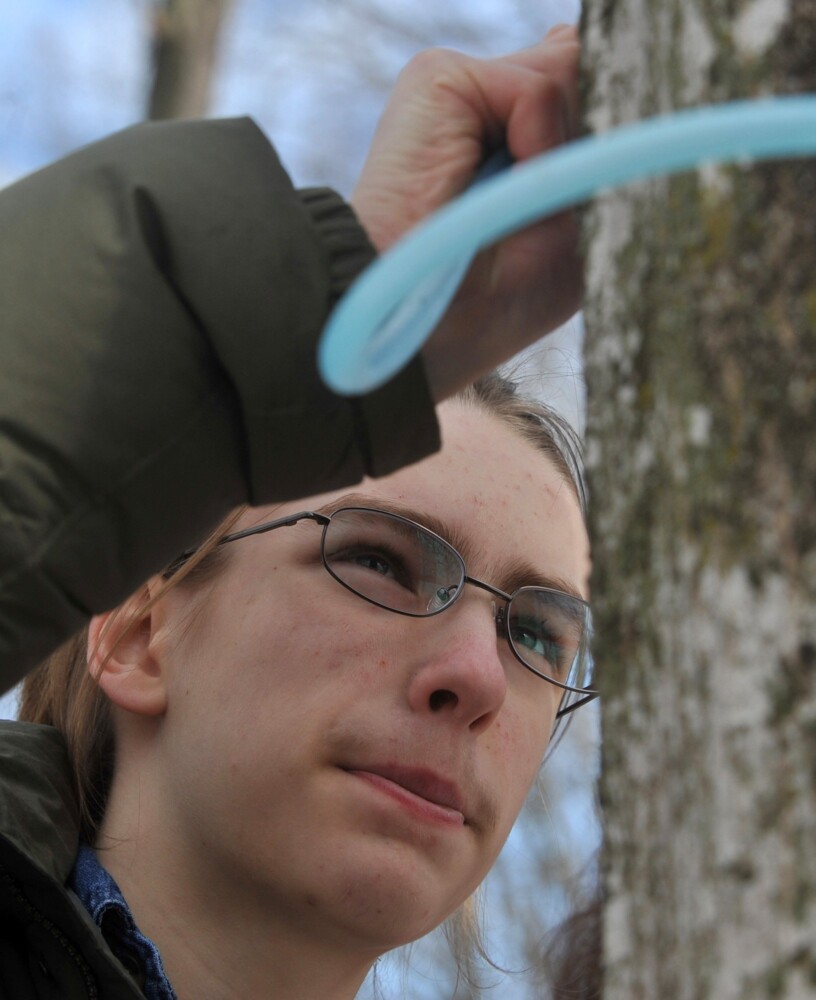
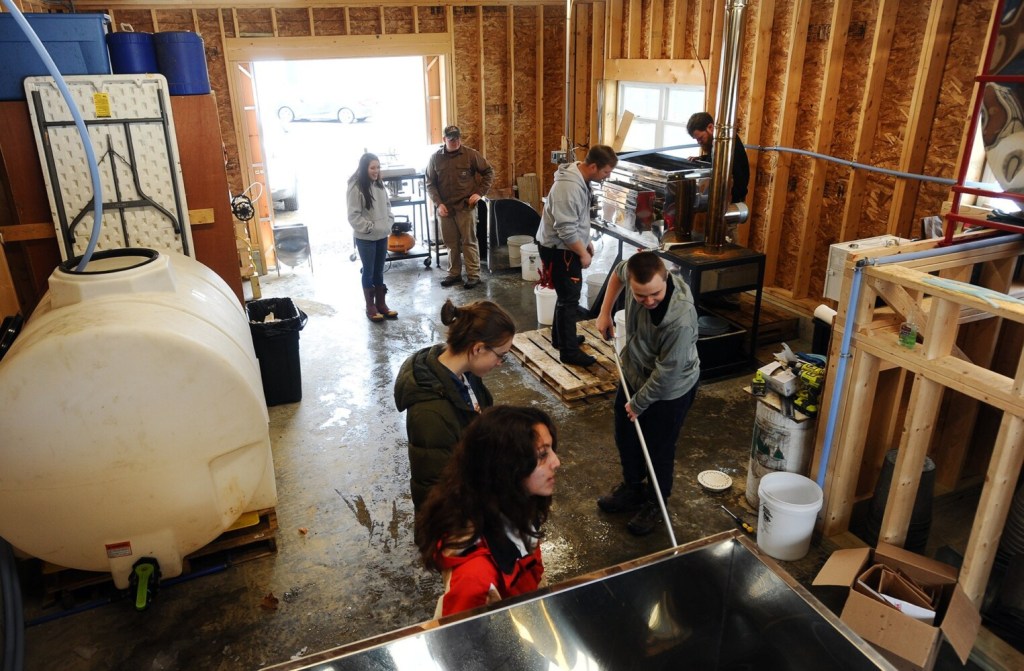
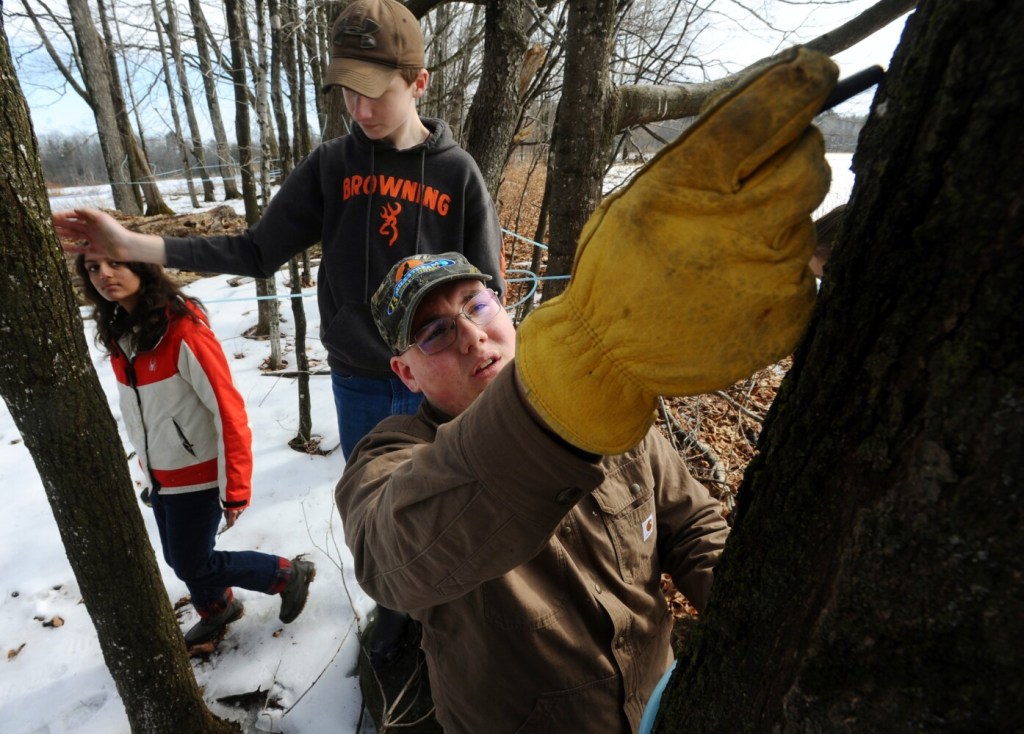
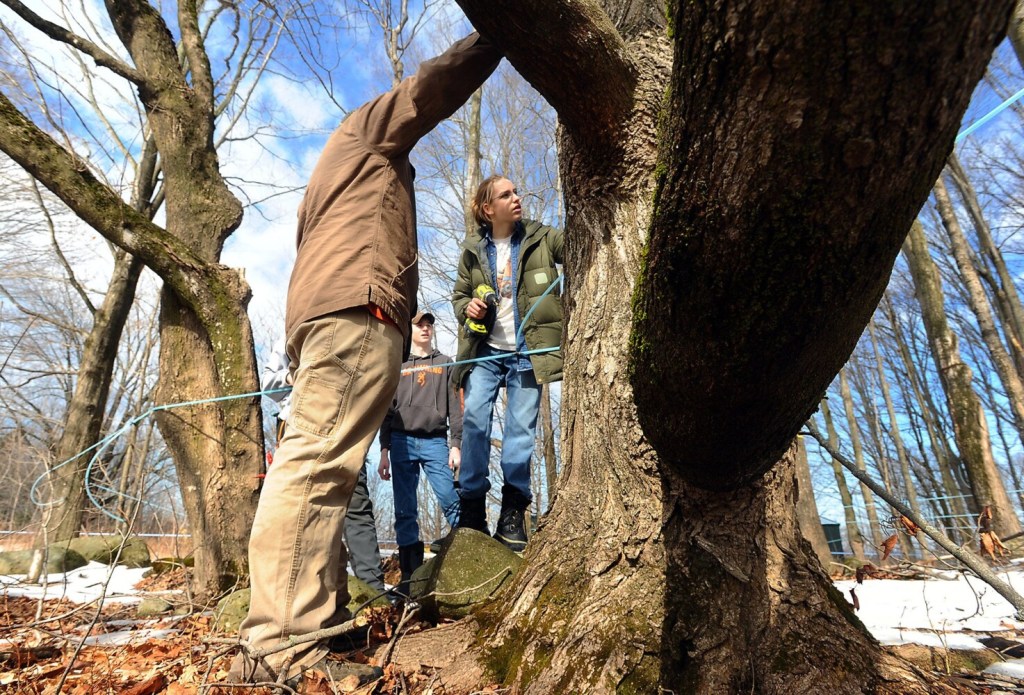
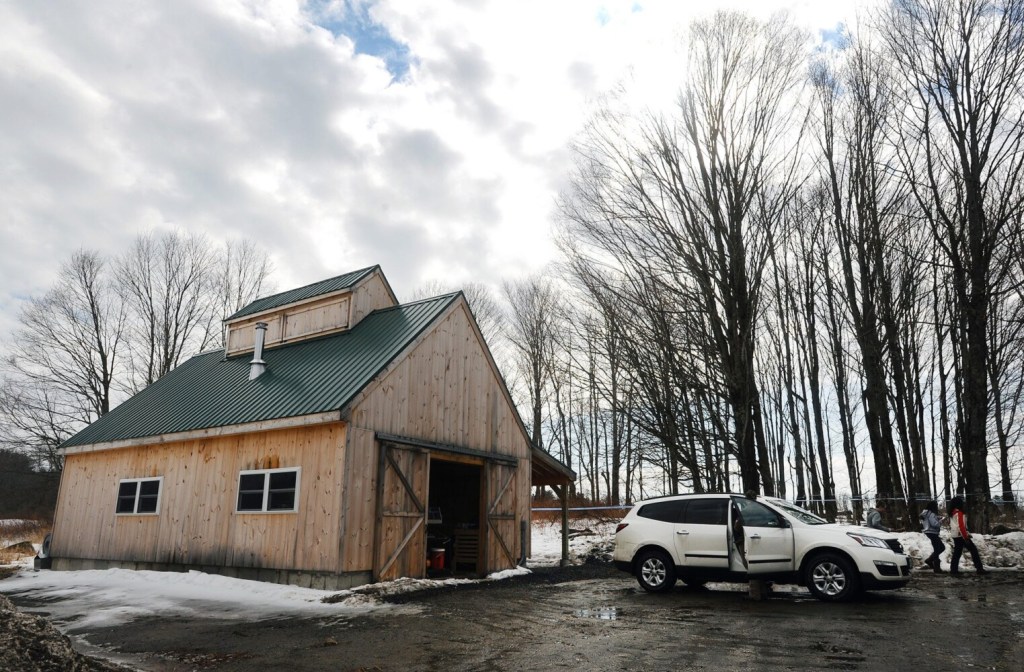

Comments are no longer available on this story